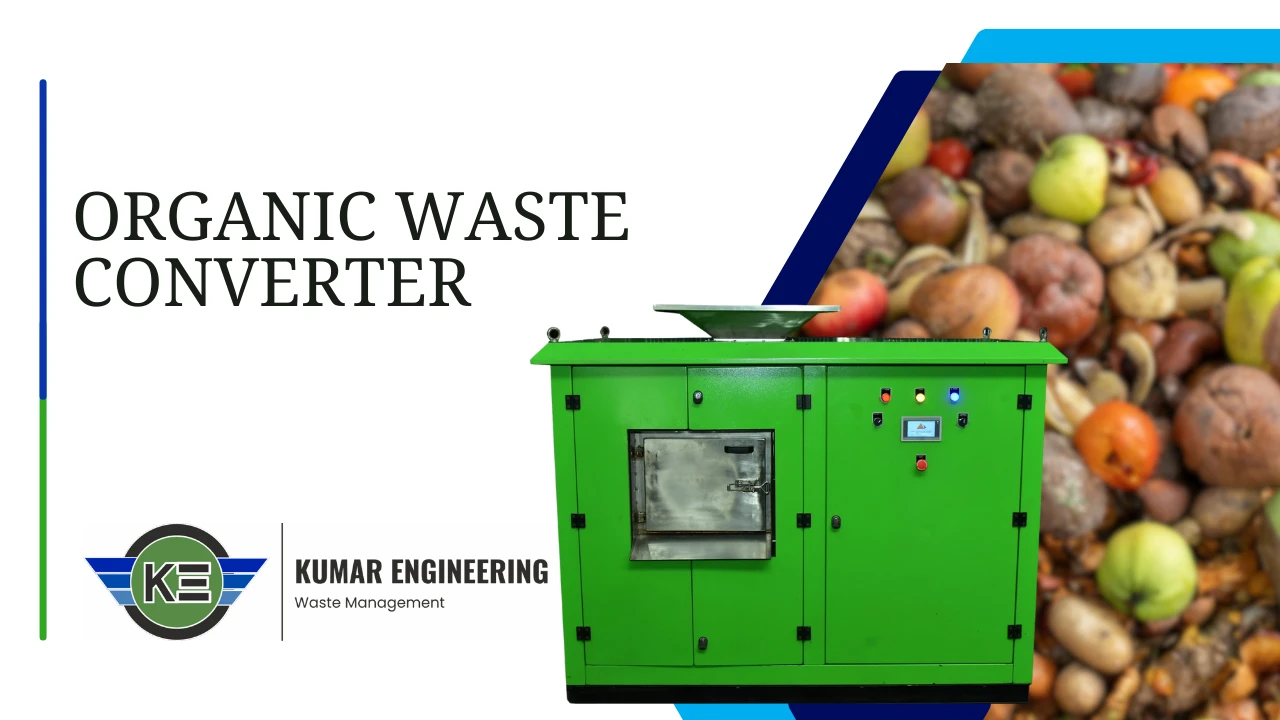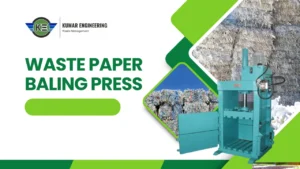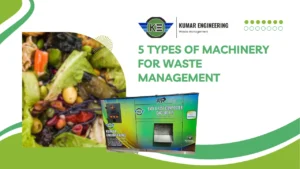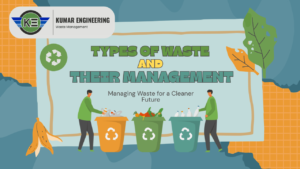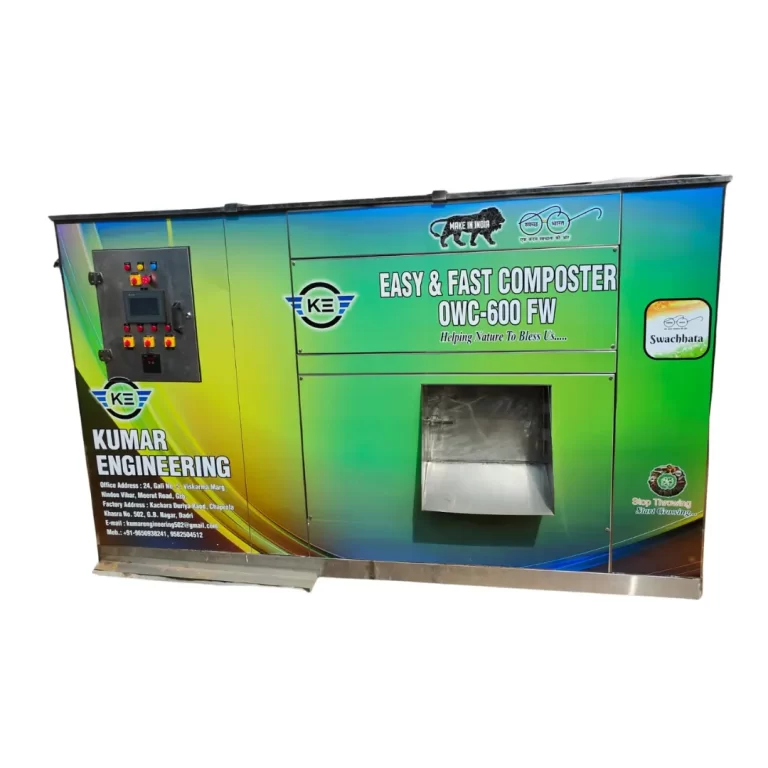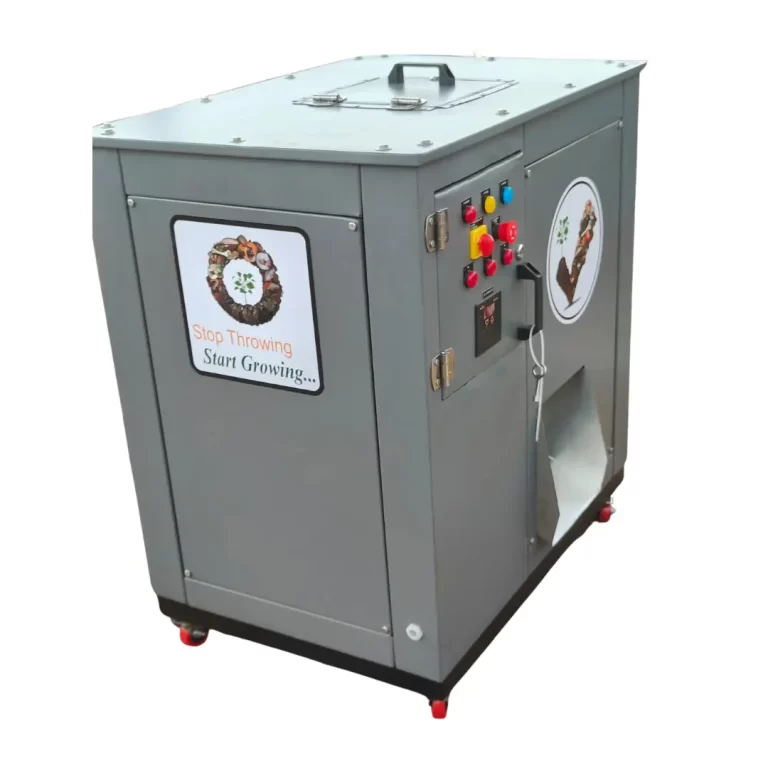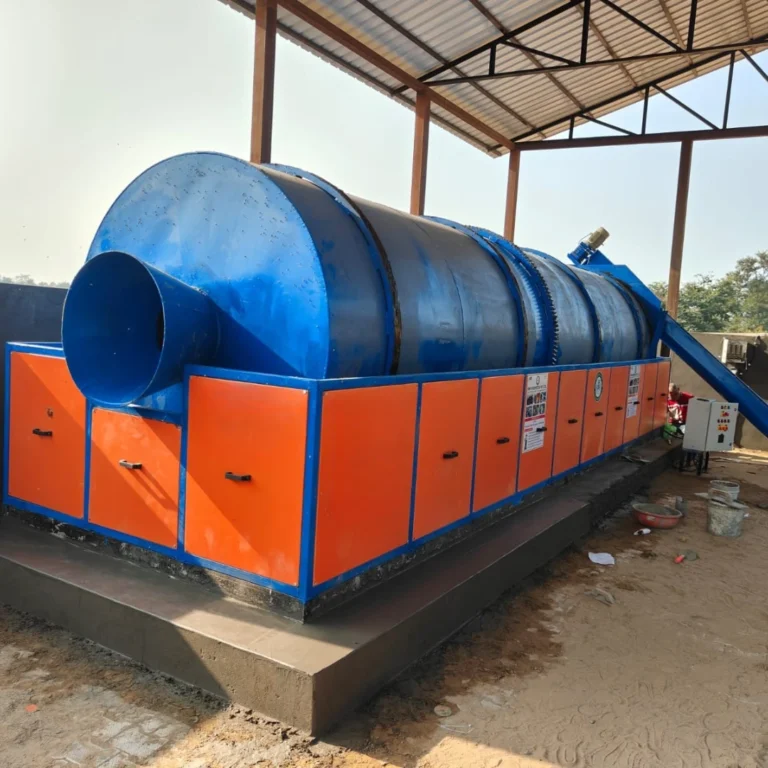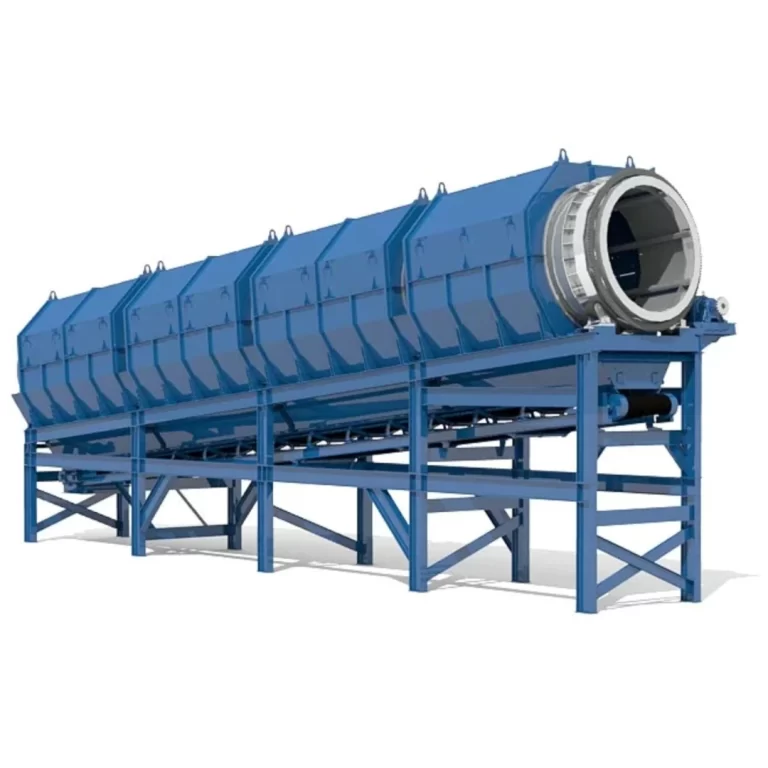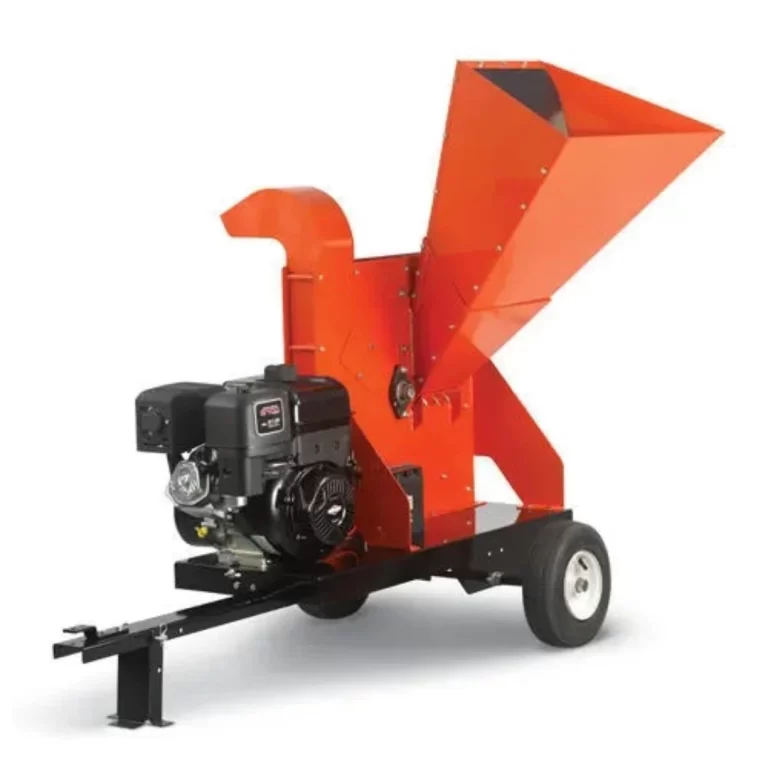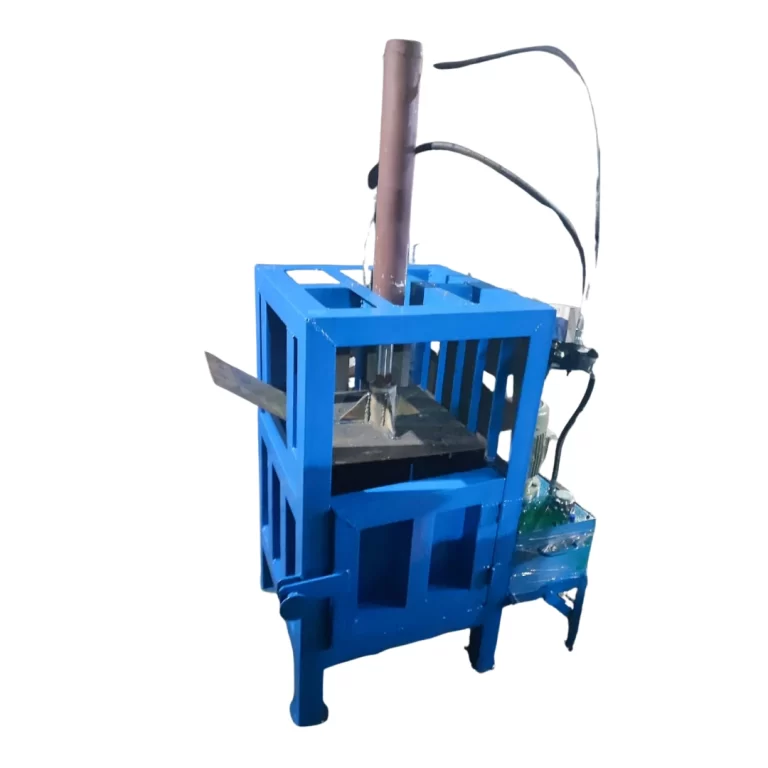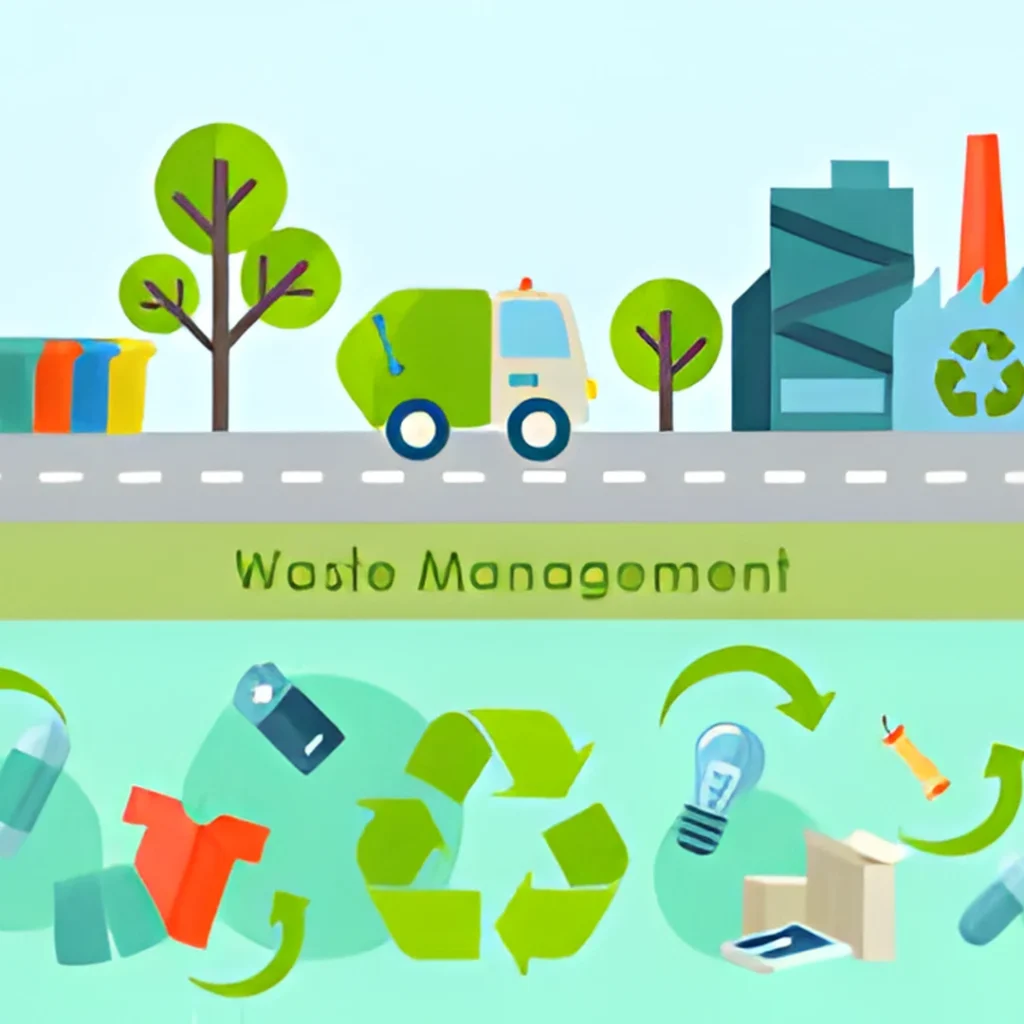In today’s development era, waste management has become a matter of considerable concern which, if not paid attention to, may lead to many problems. Waste material management has become very essential especially in urban and rural areas. With an increasing population, growing food industries, and rising consumption patterns, a huge volume of organic waste is generated every day. If not handled properly, this biodegradable waste ends up in landfills, causing pollution, foul odors, and the release of harmful greenhouse gases like methane.
In this blog, Kumar Engineering- leading Food Waste Composter Machine Manufacturer briefly explains about Organic Waste Converter, its function, benefits or uses.
What is an Organic Waste Converter?
An Organic Waste Converter is a machine that processes biodegradable waste such as food scraps, vegetable and fruit peels, garden clippings, and other organic matter into compost. It accelerates the natural decomposition process using shredding, mixing, aeration, and microbial treatment, resulting in nutrient-rich compost that can be used in agriculture, landscaping, or gardening.
These machines are widely used in residential societies, hotels, hospitals, restaurants, schools, industries, and municipalities to manage waste effectively at the source.
Work of Organic Waste Converters
Organic Waste Converters are designed to make waste management efficient and hygienic. Their key functions include:
- Segregation & Processing: The system ensures that organic waste is separated from plastics, metals, and other non-biodegradable materials before treatment.
- Shredding & Size Reduction: Large chunks of food and garden waste are shredded into smaller pieces to speed up microbial action.
- Aerobic Composting: OWCs provide proper aeration, temperature control, and moisture balance to encourage aerobic bacteria to break down waste quickly and efficiently.
- Moisture Regulation: The machines monitor and maintain optimal moisture levels required for composting.
- Odor & Pest Control: Many OWCs come with bio-filters or special mechanisms to prevent foul smells and deter pests, making the process clean and hygienic.
- Conversion into Compost: Within a short span, the organic waste is transformed into rich compost that is safe and useful for soil enrichment.
Benefits of Organic Waste Converters
Investing in an Organic Waste Converter brings multiple environmental, economic, and social benefits:
- Waste Reduction at Source: Reduces up to 80–90% of the volume of organic waste, minimizing landfill dependency.
- Eco-Friendly Waste Management: Prevents harmful greenhouse gas emissions from untreated organic waste and contributes to a healthier environment.
- Compost Production: Generates nutrient-rich compost that improves soil fertility, promotes healthy plant growth, and reduces the need for chemical fertilizers.
- Cost-Effective Solution: Lowers expenses on waste disposal, transportation, and landfill management.
- Improved Hygiene: Maintains a cleaner and odor-free environment, especially in large complexes, hotels, and food industries.
- Sustainability & Circular Economy: Promotes recycling of organic waste into valuable resources, supporting sustainable development goals.
Waste composters are of different types such as home composters, community composters, In-Vessel Composters, food composters, Automatic Organic Waste Converters, Automatic Organic Waste Converters. For these, different types of machines are available which are used to efficiently compost various types of waste. Kumar Engineering is a leading food waste composter machine manufacturer, we have a wide range of machines for waste management such as mix waste shredder, baling machine, Trommel screen machine, Fatka machine or more.
We ensure the best quality, reliability, and durability in our products. Our machines are manufactured using premium-grade materials and advanced technology, delivering long-lasting performance and customer satisfaction.

